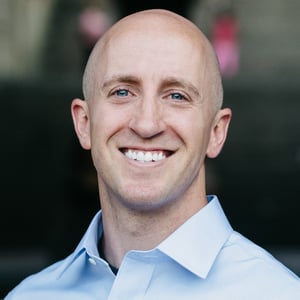Out of all the wedding receptions I’ve been to, my favorite first-dance song is Hall & Oates “You Make My Dreams Come True” (you-hoo, hoo-hoo). It’s an awesome song and not overly used, so it is a great track to kick-off the night and celebrate the newlyweds. It’s also the feature track in (500) Days of Summer, a movie that proves if things don’t work out with Zooey Deschanel, they surely will with Minka Kelly.
Unfortunately, I’m going to use this 80’s hit to segue into the least romantic topic possible: money. People spend a lifetime mindlessly accumulating wealth and buying stuff but never take time figure out what is truly important to them. The sooner you figure that out, the sooner you can use the money you already have to make your dreams come true, hoo-hoo.
Identify
Show me your latest credit card statement, and I'll tell you what is important to you. Hint: it’s where you spend your money. For example, I spend $130 a month on my gym membership, which is probably a multiple of the average monthly membership fee. It's a CrossFit gym (queue eye-roll), so there's a coach in every class, which skews the fees higher. But it's important to me. Without that daily release, I would be a walking ball of stress. I sit all day, looking at numbers and meeting with clients, so I find it restorative. I listen to loud music and throw things for an hour then go home sweaty, tired, and relaxed.
Unfortunately, we also end up spending money on stuff that isn’t important to us. For example, you know that subscription to The Economist you renew every year and never read? Is it really worth the $160 you pay to have a new coffee coaster delivered to your house every week? Unless you actually read and enjoy it, cancel the subscription and put the money toward something truly important to you.
Prioritize
At a recent conference, I heard Greg McKeown, author of Essentialism, give a talk in which he recounted a brief history of the word "priority." He said that the word originated in the 1400s and remained singular for the next 500 years. By definition, there should only ever be one, single priority; however, that logic doesn't translate to our modern culture. We try to juggle multiple, competing priorities, which defeats the whole point of setting a priority in the first place.
So what is your true priority? Don't judge yourself by whatever first pops into your head, changing it to something more socially acceptable. It’s your priority, so be honest and figure out what’s most important to you. Is it making partner at your firm? Great. Is it the ability to pick your kid up from school every day? Awesome. Is it hiking the Appalachian Trail? Perfect. It doesn't have to be practical or prudent; it just has to be something you want, something important to you.
Execute
Now, for better or for worse, whatever that thing is you find most important, it has a strong financial implication. Making partner may require hiring domestic help or one spouse staying home. Flexibility to pick your kid up may mandate reduced hours and lower pay, or maybe it pushes you to toward self-employment. And taking a leave of absence for an extended trip will require a great deal of saving. But if that is what will make you happy, these are the considerations that should dictate your financial decisions.
All too often, we focus on some magic balance your investment account has to reach before retirement, and that ends up being the primary driver behind your financial decisions. And, yes, financial planners are the most egregious offenders. But doesn’t it make more sense to focus on creating a sustainable lifestyle that you can enjoy now and throughout the rest of your life, not just in retirement? The clarity that comes with setting a priority will allow you the opportunity to spend a lifetime making financial decisions that make you happy. When you eliminate distractions (read: unimportant expenses), you can focus your money on what is actually important to you.
This process should alter your perception of money: it will no longer be a goal in and of itself but a tool used to achieve your true goals. We all know the truism money doesn’t buy happiness, so start living it. Discover what’s important to you and start making financial decisions to achieve it.




 About the Authors
About the Authors Josh Norris started his career with Ernst & Young in Memphis. In 2010, he bought a small accounting firm in Jackson, Mississippi and moved back to his hometown. Over the next few years, he developed the firm into a more narrowly focused tax practice and began expanding the client base and tax services. Through building relationships and serving clients, Josh began to see a need for more than just tax planning. As a result, he obtained the Certified Financial Planner (CFP) designation and created LeFleur Financial to better serve his clients.
Josh Norris started his career with Ernst & Young in Memphis. In 2010, he bought a small accounting firm in Jackson, Mississippi and moved back to his hometown. Over the next few years, he developed the firm into a more narrowly focused tax practice and began expanding the client base and tax services. Through building relationships and serving clients, Josh began to see a need for more than just tax planning. As a result, he obtained the Certified Financial Planner (CFP) designation and created LeFleur Financial to better serve his clients.

